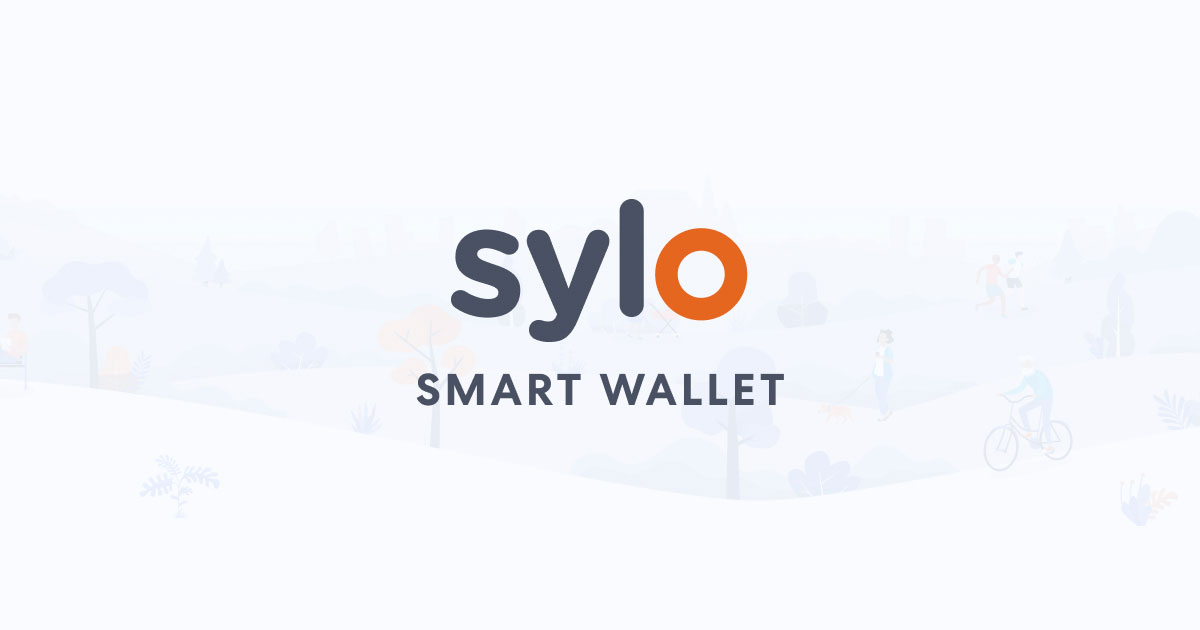Economy
Sylo (SYLO): Building a Decentralized Network for Private Communication and Data Storage

In today’s digital age, privacy and data security have become increasingly important. As more and more people rely on digital platforms for communication and data storage, the need for secure and private solutions has grown. Sylo (SYLO) is a blockchain-based project that aims to address these concerns by building a decentralized network for private communication and data storage, integrating innovative technologies. If you are planning to trade Bitcoin, you may consider using a reliable trading platform such as Turbo Investor.
In this article, we will explore the features and potential of Sylo and how it is revolutionizing the way we interact and store data securely.
The Need for Privacy and Data Security
In today’s digital age, where social media reigns supreme and centralized messaging apps are the norm, our personal information and communications face increasing risks of data breaches and privacy violations. Many conventional platforms lack the essential security measures needed to safeguard user data effectively, resulting in vulnerability to hackers and unauthorized access. Consequently, this situation raises significant concerns surrounding privacy, confidentiality, and our ability to maintain control over our personal information.
Introducing Sylo: A Decentralized Network for Privacy and Security
Sylo is an innovative project designed to address the privacy and security issues encountered by individuals using centralized platforms. Through the utilization of blockchain technology and advanced encryption techniques, Sylo offers a robust solution that allows users to communicate and store data in a highly secure and decentralized manner. By leveraging these cutting-edge technologies, Sylo empowers individuals to regain control over their digital lives, ensuring the utmost privacy and protection for their personal information.
Key Features of Sylo
- Decentralized Communication: Sylo allows users to communicate privately and securely through its decentralized network. By removing intermediaries, it eliminates the risk of centralized data breaches and unauthorized access.
- End-to-End Encryption: All communications on the Sylo network are encrypted, ensuring that only the intended recipients have access to the messages. This prevents eavesdropping and ensures the privacy of conversations.
- User Anonymity: Sylo enables users to communicate without revealing their identities. This feature gives individuals the freedom to express themselves without the fear of being tracked or monitored.
- Data Storage: In addition to communication, Sylo offers decentralized data storage capabilities. Users can securely store their files and sensitive information on the network, knowing that it is protected by encryption and distributed across multiple nodes.
- DApp Ecosystem: Sylo supports the development of decentralized applications (DApps) that leverage its infrastructure. This opens up a world of possibilities for developers to create innovative solutions that prioritize privacy and security.
The Sylo Smart Wallet
The Sylo ecosystem revolves around its central component, the Sylo Smart Wallet. This mobile application serves as an accessible entry point to the decentralized network. With the Sylo Smart Wallet, users can effortlessly handle their digital assets, ensuring secure communication and accessing decentralized applications. The wallet caters to the needs of users with varying levels of expertise, providing a user-friendly and intuitive experience for both beginners and experienced individuals alike. Its seamless functionality enables efficient management of digital assets while ensuring a high level of security and convenience.
Potential Applications of Sylo
- Private Messaging: Sylo can be used as a secure messaging platform for individuals and businesses who prioritize privacy. Its end-to-end encryption and decentralized architecture ensure that conversations remain confidential and protected.
- Secure File Sharing: With Sylo’s decentralized data storage capabilities, users can securely share files and sensitive information without relying on centralized platforms. This is particularly valuable for businesses that deal with sensitive data on a regular basis.
- Identity Verification: Sylo’s anonymity features can be leveraged for identity verification purposes. It provides individuals with a way to prove their identity without compromising their privacy.
- Internet of Things (IoT) Connectivity: Sylo’s decentralized network can serve as a secure and scalable infrastructure for connecting IoT devices. This enables the development of smart homes, smart cities, and other IoT applications with privacy and security at their core.
Conclusion
Sylo (SYLO) is leading the charge towards a decentralized future that places utmost importance on privacy and data security. Through the creation of a network that prioritizes confidentiality and control, Sylo empowers both individuals and businesses to securely communicate and store their data. With its cutting-edge features and vast potential for various applications, Sylo is poised to revolutionize the way we interact and safeguard our digital lives. Embrace the power of Sylo and become part of the movement towards a more private and secure digital world.
Economy
Nigeria to Export New Crude Grade Cawthorne in March

By Adedapo Adesanya
The Nigerian National Petroleum Company (NNPC) Limited is set to commence export of a new light, sweet crude grade known as Cawthorne from March 2026.
According to a report by Reuters, an NNPC spokesperson confirmed the development, describing it as part of efforts to increase output and consolidate Nigeria’s recent recovery in crude oil production.
The move aligns with Nigeria’s broader strategy to boost production after years of constraints caused by pipeline vandalism, crude theft, and unrest in oil-producing regions.
This follows the launch of two other new grades, Obodo in 2025 and Utapate in 2024, Nigeria, whic,h as Africa’s top oil exporter, seeks to strengthen its standing within the Organisation of the Petroleum Exporting Countries and its allies (OPEC+)
Cawthorne crude is scheduled for export in the third week of March and has an API gravity of 36.4, making it similar in quality to Nigeria’s Bonny Light, which is prized for high petrol and diesel yields.
According to Reuters, citing a trading source, the state oil national company issued a tender last week for cargo loading between March 24 and 25.
Analysts at Kpler noted that the new grade is expected to be exported via the Floating Storage and Offloading (FSO) vessel Cawthorne, which has a storage capacity of about 2.2 million barrels. The vessel is designed to enhance transportation and production from Oil Mining Lease (OML) 18 and nearby assets in the Eastern Niger Delta.
Kpler estimates that, based on storage capacity, Cawthorne could increase Nigeria’s crude and condensate output from roughly 1.65 million barrels per day to around 1.7 million barrels per day for the remainder of the year.
Nigeria’s crude oil production recently dropped from the OPEC+ quota of 1.5 million barrels per day, with output at 1.48 million barrels per day recorded in January, according to OPEC data.
Beyond increasing Nigeria’s crude offerings to the international market, the introduction of Cawthorne could also attract buyers seeking specific light, sweet crude qualities, buoy foreign exchange earnings, which would help strengthen government revenue and ease borrowing needs.
New crude grades are typically differentiated by sulfur content, API gravity, and production source, enabling producers to target specific refinery configurations and market segments.
In November 2024, NNPC officially launched the Utapate crude oil blend in the international market, describing it as a milestone for Nigeria’s export profile.
Earlier in July 2024, NNPC and its partner, Sterling Oil Exploration & Energy Production Company (SEEPCO), lifted the first 950,000-barrel cargo of Utapate crude, which was shipped to Spain.
Economy
Moniepoint Research Shows Diminishing Role of Cash in Nightlife Payments

By Modupe Gbadeyanka
A new report released by Africa’s leading all-in-one financial ecosystem, Moniepoint Incorporated, has revealed that the use of cash for financial transactions is gradually dying due to security concerns.
The study, which looked into transaction data of over 27,000 clubs, bars, and lounges, showed that bank transfers dominated, followed closely by card payments, with cash actively discouraged. It was observed that transfers outpace card payments by nearly 2 million transactions during peak nighttime hours across its network.
In the research titled The Business of Community Nightlife in Nigeria, findings provided a rare, data-driven look into the country’s informal night economy.
While high-end Detty December venues grabbed headlines with daily revenues of N360 million and table prices reaching N1.2 million, Moniepoint’s study shifted the spotlight to the “community nightlife” where roadside bars, suya spots, and neighbourhood joints form the bedrock of social life for millions of Nigerians.
One of the study’s most operationally significant findings concerns the timing of spending. Nightlife in Nigeria runs late, but economically, the night is decided early.
Transaction volumes begin climbing sharply from 8 pm, peak before midnight, and then decline steadily even as venues remain full. By the time the night is at its longest, purchasing activity has already wound down.
However, for bar operators, this has clear practical implications – the most critical hours for staffing, stocking, vendor payment and cash flow management are the earliest hours of the day between midnight and 6 am.
The report further underscores the sector’s role in employment, noting that local bars typically expand their workforce by 30-50 per cent on peak nights. Conservative estimates suggest that at least 54,000 people are engaged in nightlife labour every night across Nigeria.
It was also observed that the most common transaction narrations from the data sourced – “food”, “pay”, “sent”, “pos”, “cash” – reflect the full breadth of nightlife spending: street food, club entry, lounge tabs, transport, and afterparties. Digital payments have gained huge traction in Nigeria’s social space.
While alcohol remains a key revenue driver, the data shows that food is the quiet stabiliser of Nigeria’s night economy, particularly in local and informal settings. In several neighbourhood venues, bottled water and meals outsell beer and spirits, especially early in the evening.
Lagos leads in sheer concentration of nightlife establishments, with 4,856 bars, clubs, and lounges on the Moniepoint network. FCT follows with 2,515, then Rivers (2,362), Delta (1,930), and Edo (1,574).
Katsina leads the country in nighttime food truck payment value, with vendors pulling in over N130 million in the last 12 months. Kwara State leads in transaction count. Nigeria’s nightlife economy is distributed, not overly elitist.
On the lending side, the report noted that a significant share of loan requests from bar and lounge operators is directed toward renovations, furniture, lighting, and sound systems, showing that investments are intended to attract and retain customers in a competitive sector where ambience plays a decisive role.
Commenting on the report, the chief executive of Moniepoint, Mr Tosin Eniolorunda, said, “Nigeria’s local bars and night-time operators are not peripheral to the economy; they are a critical part of its architecture. We see a substantial and sustained economic sector that employs hundreds of thousands of Nigerians every night and deserves the same attention we give to agriculture, healthcare, and retail.
“Our goal is to make sure every one of those businesses has the tools to grow. From giving credit to finance renovations and sound systems to providing same-day settlement that allows vendors to restock and with tools like Moniebook that power inventory management and reconciliation, Moniepoint is ensuring that this vital artery of the nation’s economy remains viable and empowering.”
Economy
CBN Reduces Interest Rate by 50 Basis Points to 26.50%

By Adedapo Adesanya
The Central Bank of Nigeria (CBN) has cut the interest rate by 50 basis points to 26.50 per cent from 27 per cent.
Nigeria’s apex bank announced this during its two-day 304th Monetary Policy Committee (MPC) meeting, which concluded on Tuesday in Abuja.
This comes after the country’s interest rate cooled in January to 15.10 per cent from 15.15 per cent, according to the National Bureau of Statistics (NBS), strengthening the case for a reduction.
The CBN Governor, Mr Yemi Cardoso, said all members of the MPC unanimously agreed upon the decision.
“The committee decided to reduce the monetary policy rate by 50 basis points to 26.50 per cent,” he said.
Mr Cardoso stated that the liquidity ratio was maintained at 30 per cent, and the standing facilities corridor was adjusted to +50 to -450 basis points around the monetary policy rate.
He said the committee retained the Cash Reserve Ratio (CRR) at 45 per cent for commercial banks and 16 per cent for merchant banks, while the 75 per cent CRR on non-TSA public sector deposits was equally maintained.
The CBN uses the MPR, which works as the benchmark interest rate, to manage inflation, macroeconomic stability, and liquidity.
Last November, the MPC retained the Monetary Policy Rate (MPR) at 27.00 per cent. The last time the apex bank cut interest rates was in September last year, to 27 per cent from 27.50 per cent after a series of easing in inflation.
Market analysts had argued for higher interest cuts due to results seen in the CBN’s inflation targeting framework. Meanwhile, some say the 50 basis points reduction will offer a temporary reprieve as inflation heads for a single-digit target in the coming months.
-

 Feature/OPED6 years ago
Feature/OPED6 years agoDavos was Different this year
-
Travel/Tourism10 years ago
Lagos Seals Western Lodge Hotel In Ikorodu
-

 Showbiz3 years ago
Showbiz3 years agoEstranged Lover Releases Videos of Empress Njamah Bathing
-

 Banking8 years ago
Banking8 years agoSort Codes of GTBank Branches in Nigeria
-

 Economy3 years ago
Economy3 years agoSubsidy Removal: CNG at N130 Per Litre Cheaper Than Petrol—IPMAN
-

 Banking3 years ago
Banking3 years agoSort Codes of UBA Branches in Nigeria
-

 Banking3 years ago
Banking3 years agoFirst Bank Announces Planned Downtime
-

 Sports3 years ago
Sports3 years agoHighest Paid Nigerian Footballer – How Much Do Nigerian Footballers Earn



















